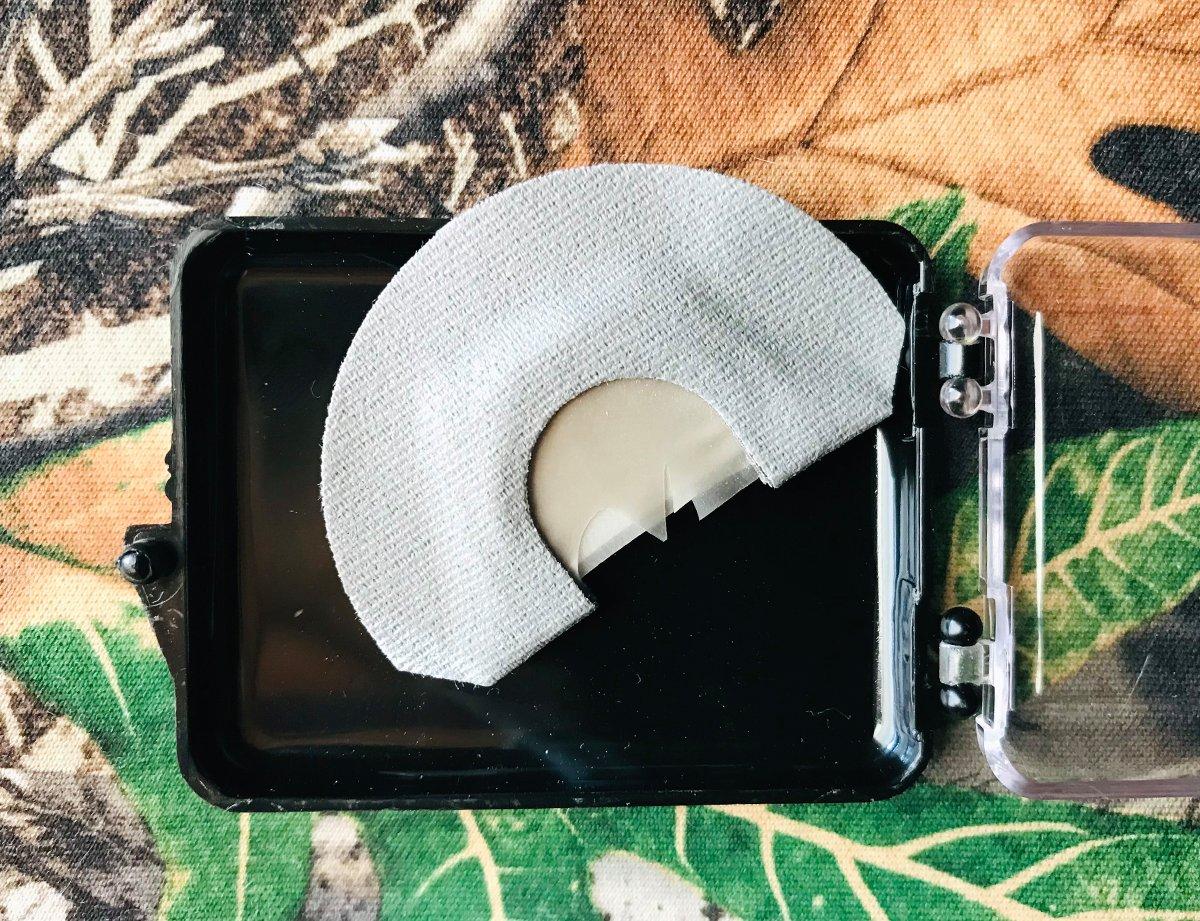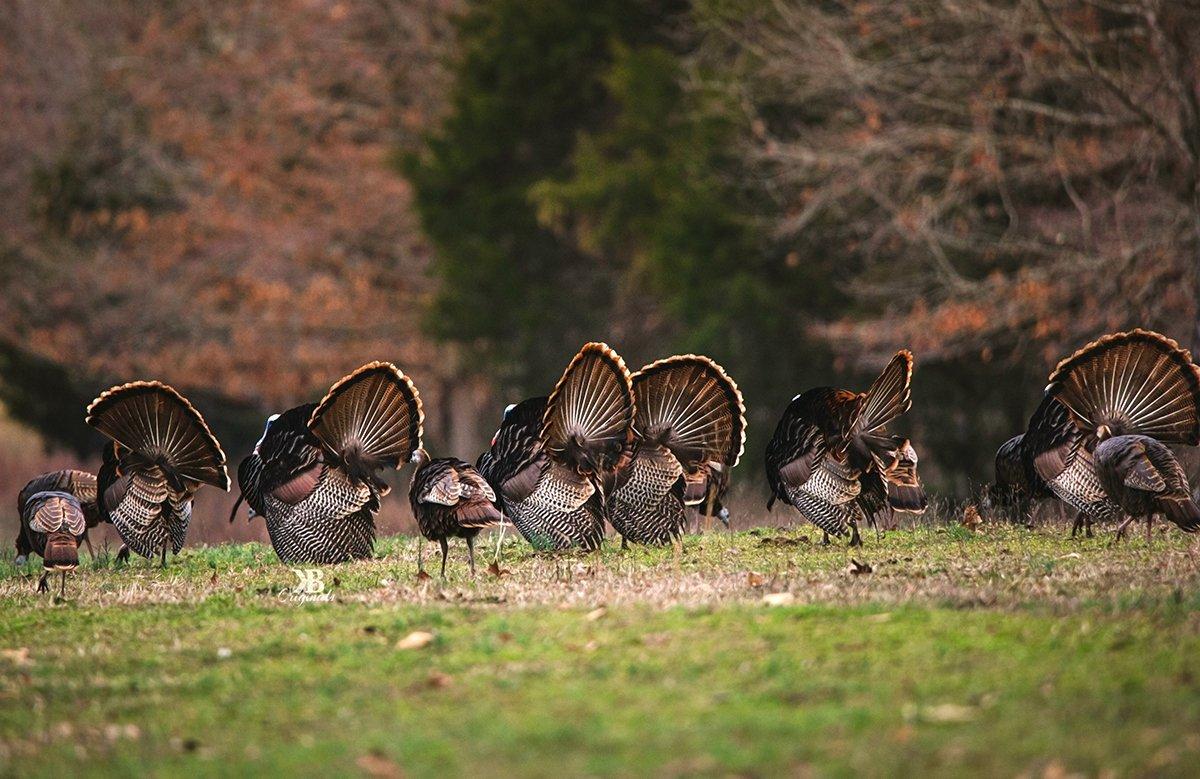Do your yelps and clucks sound like a competition stage winner's one day and a screech owl the next? Maybe we can help
Afraid of using a mouth call? Your yelps failing to close the deal? Not sure which diaphragm to choose? Pennsylvania's Scott Basehore is a longtime turkey hunter, guide, contest judge, and award-winning call maker at the highest level. I caught up with him for tips on how to improve your mouth calling.
Listen to Real Turkeys
How does Basehore stay consistent with his mouth calling?
It's listening to turkeys, he says. Developing this ability is important. I'm fortunate to spend a lot of time in the woods hunting and guiding. Not all wild turkeys make a set number of notes for certain vocalizations — though you can sometimes pick out a hunter in the woods immediately by the unvaried rhythms. You'll hear the same pattern from some guys, again and again. If you listen to a hen though, she may yelp a certain number of times, cluck, and add soft yelps with a different number of call notes.
Find the best diaphragm call for you. Try a lot until you do. I've run a lot of calls over the years and look for a high front-end sound with a lot of rasp.
— Scott Basehore
Basehore is not only a well-known call maker, guide, and turkey hunter, but he's also judged many a high-ranked turkey calling contest, including the Grand Nationals. What does he look for in terms of mouth calling consistency from the best in the business?
To put it simply, as a contest judge, I listen for 'turkey.' I envision a turkey in the woods as contestants call, and try to picture it. There are little things some of those guys do that work better than others, making them sound consistently like a turkey. In judging situations you've got to have an open mind though.
Why? Because you'll hear different callers the same way you hear distinct turkeys in the woods. If it makes the hair stand up on the back of my neck, that caller is going to rank high. Even at that stage of the game nerves may make a caller mess up.
As with a hunting situation, right?
CALL TIP: As Basehore suggests here, even some hunters and contest callers have issues. Their talents vary by degrees in terms of sounding like real turkeys. Reason suggests for consistent calling while hunting, you should make the vocalizations you do best. Mostly, when you're out there with flocks, listen to how birds interact. This will surely help improve your calling.
Call Soft and Loud
There's more to it than using just one volume for turkeys. To consistently call well, vary soft and loud notes.
Vary mouth call positioning. After you've picked the ideal diaphragm, find the best way to call hard and soft, says Basehore. Don't huff as hard to call softly; tone it down. I actually even change the mouth call position, moving it forward to maintain more control for softer calling. Shouting and whispering is varied this way, of course. Shift the air seal forward in your palate. You're basically using the same jaw movement, and the same call, but it's not as magnified as when calling loudly with more volume.
CALL TIP: Loud calling is generally easier for turkey hunters; soft vocalizations are harder. Don't try to blow on heavy reeds if it's tough for you. Thinner latex might work better to give you more versatility, Basehore says.
Find the Right Call
To be consistent, you first have to sample what's out there. Find the best diaphragm call for you. Try a lot until you do, Basehore says. I've run a lot of calls over the years and look for a high front-end sound with a lot of rasp.
[Don't Miss: Do You Know Your Turkey Hunting Mouth Calls?]
New to this? Single- and double-reed diaphragms offer stylistic simplicity. Less air pressure is usually involved than with a more complicated latex reed configuration.
Once comfortable with these basic diaphragms, try a V-cut, and other cut variations, often built with several reeds in place. After finding a cut you like, continue to experiment, but also buy up a few of the diaphragms best suited for your calling style. Less reed spacing will make for tighter front reed edges, which is better for a novice caller learning to use a mouth diaphragm. Multiple reeds make for raspy vocalizations if you want that.
Start with plain yelps and clucks. Put the call's horseshoe end on your palate, latex reed(s) facing out. The small bump or tab on most frames should face down. Work the diaphragm into the roof of your mouth with your tongue to get a tight air seal. Root it there or your call won't work. Place your tongue lightly over the reed(s), and huff short yelplike notes of air. Don't blow too hard at first.
CALL TIP: Once you make your picks, take care of your diaphragms to maintain call consistency. Basehore dips his diaphragms in mouthwash each morning. This kills bacteria. Then he rinses with hot water and uses toothpicks to keep reeds apart — the old-school picking approach. As a serious turkey hunter and guide, he usually goes through most diaphragms in a season. If not, during the off-season he keeps calls in the refrigerator crisper.
Still Not Sold?
Why are friction calls easier to run than mouth calls?
Basehore says, It might be that some turkey callers can do things better with their hands. You can look down and see what you're doing. You can't see what's going on in your mouth with tongue movements and so forth.
In the end, some hunters simply find it tough to use mouth calls with any kind of consistency. Friction calls are a one-movement type deal for sound, Basehore says. In mouth calling, you have to do a series of things for control. As a result, he says, some callers will just have to admit consistency comes easier with a box or pot-and-peg call.
In the end, it's okay if you prefer friction calls. Many have yelped turkeys into range. And many more will.
[Don't Miss: Do You Need a Custom Turkey Call?]
What makes Realtree.com the best online resource for turkey hunters? See for yourself. We cover all things turkey right here.










